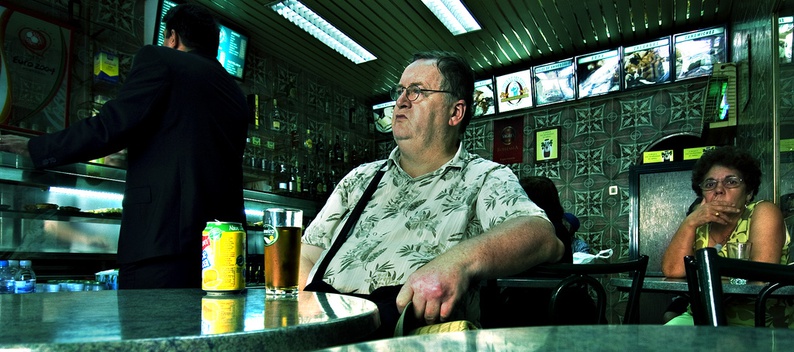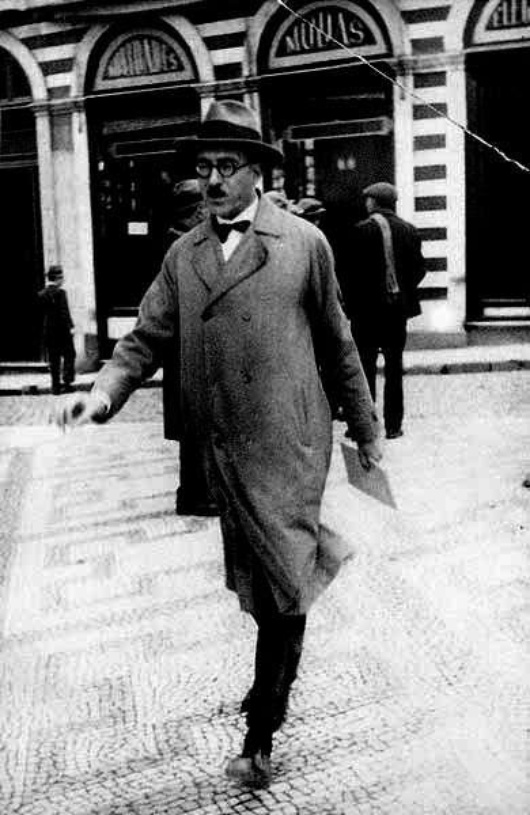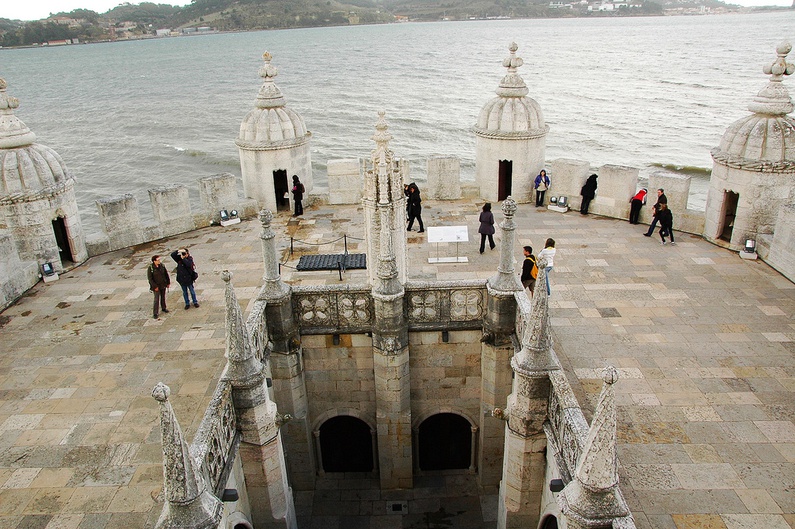
Anything but lethargic: multi-faceted life of a German in Lisbon
Published on
Translation by:
Annie RutherfordComing to the Portuguese capital as a tourist, everything is fabulous: the light, the weather, the friendly people. Enchanted, you watch grandmothers eating grapes, get excited about the ancient trams and enjoy the sun in front of the café... proper south European Gemütlichkeit, think the Germans and lean back contentedly in their seats.
Coming to the Portuguese capital as a tourist, everything is fabulous: the light, the weather, the friendly people. Enchanted, you watch grandmothers eating grapes, get excited about the ancient trams and enjoy the sun in front of the café – while the waiter enjoys some small talk at the neighbouring table. Proper south European Gemütlichkeit, think the Germans and lean back contentedly in their seats.
This changes however when they stay longer. Because then many things bring them up short: the telephone message which goes unanswered, the broken engagement, the forgotten coffee. Even Hans Magnus Enzensberger spoke about this: this weird tranquillity which reaches sleeping sickness, this patience which can go as far as resignation. The Portuguese mentality doesn’t make it easy for the German émigré. Of course you want to adapt but there are limits. On pavements you constantly stumble into the backs of passersby who have unexpectedly stopped in their tracks; you stand helpless in front of empty supermarket tills and lost at bus stops. In these moments you think that nothing works in this country. You feel misunderstood, a German among Portuguese.

But this is just the first phase. Gradually the visitors to Portugal can begin to notice the first changes in themselves: they have almost imperceptibly become slower, and almost imperceptibly they are no longer so strict about punctuality. And then one day they realise that they no longer expect people to call them back at all, not punctually anyway. They understand the theoretical character of an engagement, and wait casually behind the gossiping passersby on the narrow pavements. They have understood the system. They have adapted.
 And the Germans, once hemmed in by their legendary work flow and diligence, begin to question themselves. Didn’t they come here precisely for this reason? The calm, the sun, the delight in life? Your instinct tells you that actually you don’t want to work at all. It is too warm, too beautiful, too lulling. For a moment life becomes a soap bubble. Nothing is important anymore, at least, not at the moment. And you use the time waiting for your coffee to look around interestedly but languidly. You become a spectator. And understand a whole lot more.
And the Germans, once hemmed in by their legendary work flow and diligence, begin to question themselves. Didn’t they come here precisely for this reason? The calm, the sun, the delight in life? Your instinct tells you that actually you don’t want to work at all. It is too warm, too beautiful, too lulling. For a moment life becomes a soap bubble. Nothing is important anymore, at least, not at the moment. And you use the time waiting for your coffee to look around interestedly but languidly. You become a spectator. And understand a whole lot more.
In these moments it becomes clear why the Portuguese chose a man like Fernando Pessoa to be their national poet. A man who could stare for hours at a time out of his office window; a man who, bent over files, lost himself in the big questions of life; a man who dwelt over many pages highly poetically on the futility of human existence and at the same time threw this same certainty into doubt.
In such moments it seems logical that this nation, once a world power, created in Maueline its own style and yet can count off the buildings dedicated to this style on two hands. And if you compare the Hieronymite convent in Belém with the magnificent church buildings of the Spanish neighbours, the Portuguese version seems, despite its breath taking detail, far less bombastic. At least as far as height is concerned: while the Spanish strived to reach the sky, the Portuguese went for width instead. That is respect before God, some people would explain. That is rather the Portuguese style, say others. The Portuguese count themselves as inventive and imaginative but do not tend towards over-productivity.
Lisbon: anything but lethargic
But you would be mistaken to think as a disciplined German that the Portuguese are slow, or even lazy. Their bursts of productivity are too intensive, their nights too vibrant, their films and music too original. They say that no country goes later to bed. This nation discovered a huge part of the world in the 15th and 16th century! And in 1974 half of Lisbon came out onto the streets to personally send a hated dictator into exile.

The contradictory and foreign, the unpredictable and chaotic – it all stems from this volatility. To put it plainly, in Portugal you find yourself dealing with other people every day. 'Each of us is several, is many, is a profusion of selves,' Fernando Pessoa put into the mouth of one of his pseudonyms. That is exactly what you hear again and again here – from train conductors, officials and fado singers equally. The person is a natural accumulation of others. That is more than just capriciousness.
At first you still resent the fact that people who yesterday were brimming over with happiness today can’t get out of bed for weariness. But somehow you can’t help but admire them: this authenticity, this stoic acceptance of emotional fluctuation. And yes, this contentment to watch everything, expecting nothing. Até amanha, se Deus Quiser, say the old people here at goodbyes. Until tomorrow, if God will.
Images: city ©*L; bar ©cinocino; Belém tower ©黃毛; Fernando Pessoa © Luiza Hipólito/ Flickr
Translated from Von wegen träge: Das vervielfältigte Leben eines Deutschen in Lissabon



